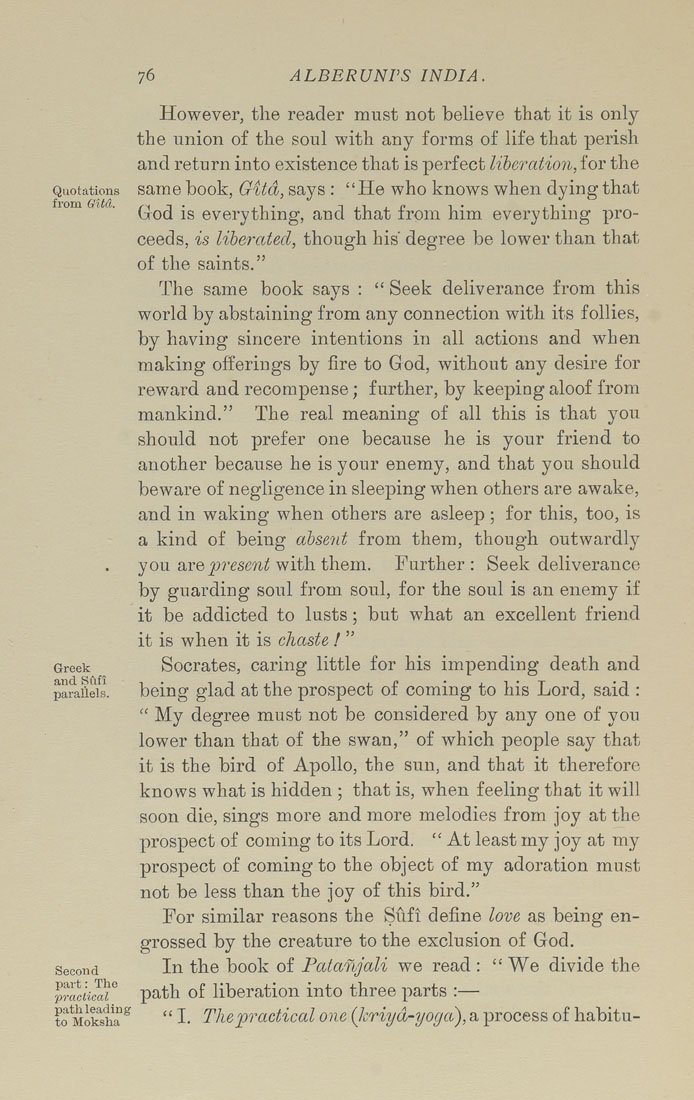Bīrūnī, Muḥammad ibn Aḥmad, Alberuni's India (v. 1)
(London : Kegan Paul, Trench, Trübner & Co., 1910.)
|
||
|
|
|
|
| Page 76 |

76 ALBERUNPS INDIA. Quotations from Gitd. Greek and Sufi parallels. Second part: The practical path leading to Moksha However, the reader must not believe that it is only the union of the soul with any forms of life that perish and return into existence that is perfect liberation, for the same book, Gitd, says : "He who knows when dying that God is everything, and that from him everything pro¬ ceeds, is liberated, though his' degree be lower than that of the saints." The same book says : " Seek deliverance from this world by abstaining from any connection with its follies, by having sincere intentions in all actions and when making offerings by fire to God, without any desire for reward and recompense; further, by keeping aloof from mankind." The real meaning of all this is that you should not prefer one because he is your friend to another because he is your enemy, and that you should beware of negligence in sleeping when others are awake, and in waking when others are asleep; for this, too, is a kind of being ahseiit from them, though outwardly yon Sure present witiithQin. Further: Seek deliverance by guarding soul from soul, for the soul is an enemy if it be addicted to lusts; but what an excellent friend it is when it is chaste ! " Socrates, caring little for his impending death and being glad at the prospect of coming to his Lord, said : " My degree must not be considered by any one of you lower than that of the swan," of which people say that it is the bird of Apollo, the sun, and that it therefore knows what is hidden ; that is, when feeling that it will soon die, sings more and more melodies from joy at the prospect of coming to its Lord. " At least my joy at my prospect of coming to the object of my adoration must not be less than the joy of this bird." For similar reasons the Sufi define love as being en¬ grossed by the creature to the exclusion of God. In the book of Patanjali we read : " We divide the path of liberation into three parts :— " I. The practical one (kriyd-yoga), a process of habitu- |
| Page 76 |







